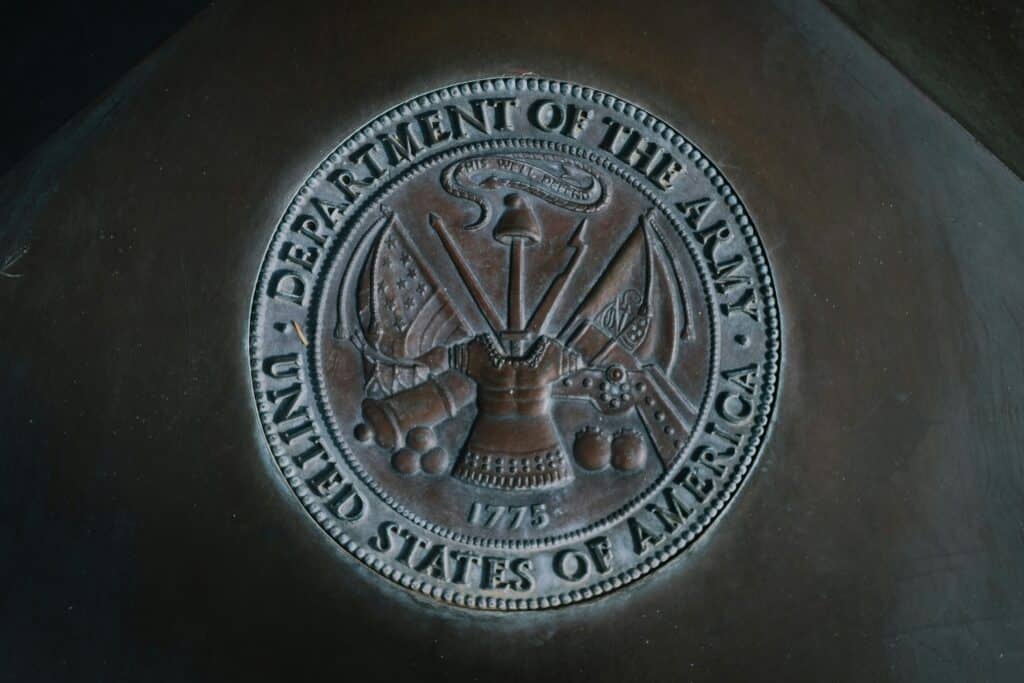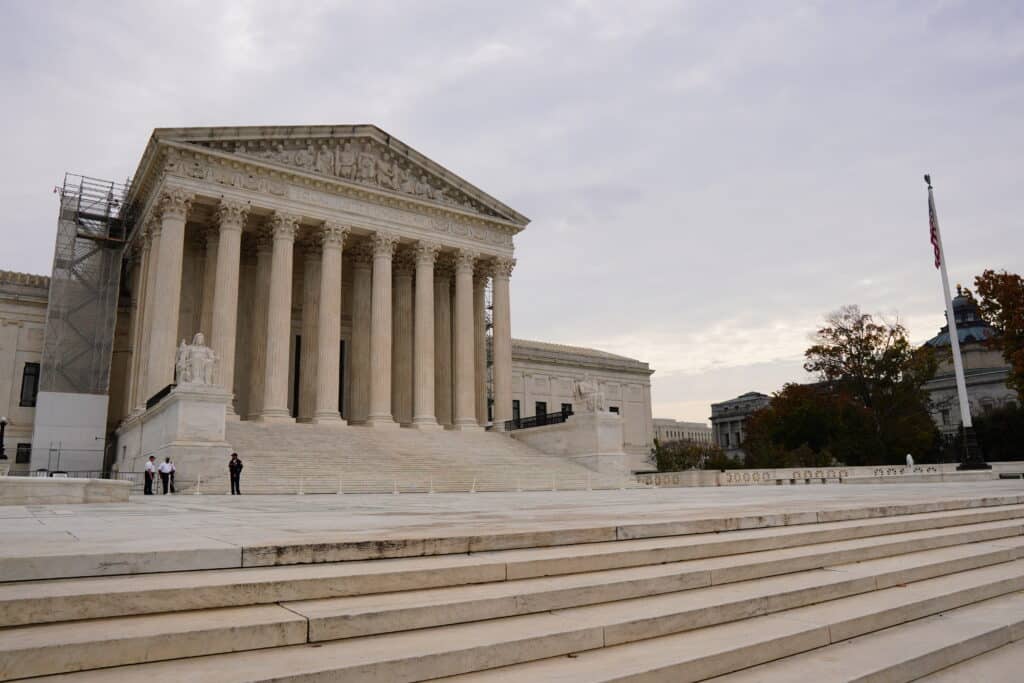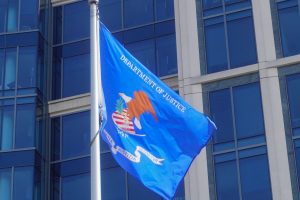We’ve seen some fascinating (and controversial) new strategies to try and combat mass shootings after the fact in recent years. The trend of charging parents for the actions of school shooters comes to mind. Now, it looks like mass shooting victims suing government agencies over the ways their negligence enabled a killer appears to be the next trend.
Victims of the Lewiston, Maine shooting have notified the Army they may soon file suit. Contributing Writer Jake Fogleman takes a look at the situation and the template the Lewiston victims might follow.
Then, I dive into the latest poll on the Supreme Court’s landmark Bruen decision. It’s popular and only getting more popular. You’ll probably be surprised to see just how broad approval of the Bruen is, but there are some caveats.
Plus, Cam Edwards of Bearing Arms joins the podcast to discuss the fallout from the NRA’s animal cruelty story.

Analysis: Mass Shooting Lawsuit Against the Army Has a Template for Success [Member Exclusive]
By Jake Fogleman
For the second time, a branch of the armed forces may soon find itself under legal scrutiny for failing to prevent a mass shooting carried out by one of its members. There’s reason to think that suit could succeed.
On Tuesday, lawyers representing a group of 100 survivors and family members of victims of last year’s mass shooting in Lewiston, Maine, served the US Government legal notice of their intent to sue the Department of Defense, the US Army, and the Keller Army Community Hospital for negligence. They allege the Army failed to adequately respond to warning signs and an explicit threat to commit a mass shooting from a reservist before he ultimately carried out his attack last October.
The shooter went on to kill 18 and wound 13 others in what became the deadliest mass shooting in Maine history.
“In the year since the mass shooting, there have been several investigations and many facts have come to light that show that the Army could have—and should have—acted,” Travis Brennan, one of the attorneys representing the families, said in a statement. “[It] is now abundantly clear that there were many opportunities to intervene that would have prevented the tragic events of October 25.”
In many ways, the planned lawsuit is the expected result of nearly a year’s worth of scrutiny into what went wrong and allowed the Lewiston shooting to happen. Separate formal investigations conducted by the US Army Reserve, US Army Inspector General, and an independent commission ordered by Maine Governor Janet Mills (D.) have all faulted members of the shooter’s Army unit, Army leadership, and local law enforcement to varying degrees. The reports primarily criticized them for failing to disarm the troubled reservist and follow up on his erratic behavior despite having several opportunities to do so. The Army even admitted to disciplining three members of his unit leadership for “dereliction of duty” related to their handling of the situation.
But suing government agencies and officials for not preventing or even stopping somebody from carrying out violent attacks is an uphill battle. In general, the legal system places an extremely high bar for successful liability claims against the government, particularly for cases in which third parties caused the harms. Government entities enjoy sovereign immunity, which generally shields them from liability suits, and decades of case law have established that government officials do not have a legal duty to protect individual members of the public from harm under nearly all circumstances.
However, that hill has been climbed, and that bar has been cleared before.
The Federal Tort Claims Act (FTCA) partially waives the federal government’s sovereign immunity by allowing private parties to hold it responsible for wrongdoing its employees or agents committed during their employment. With certain exceptions, the law creates an avenue for the government to be found liable under circumstances in which a private citizen committing the same act would be liable under tort law.
In what could be the closest analog for the Lewiston suit, an FTCA claim was the vehicle through which more than 80 victim family members and survivors of the Sutherland Springs shooting were able to secure a $230 million liability judgment against the Air Force in 2022. In that case, the Air Force failed to report the Sutherland Springs shooter’s military conviction for domestic violence to the National Instant Criminal Background Check System (NICS). That omission allowed the shooter to purchase the gun he later used to carry out the attack.
The judge overseeing that lawsuit concluded that the government “failed to exercise reasonable care” when it did not submit the gunman’s criminal record to NICS, and its negligence was “60% responsible for the Plaintiffs’ injuries.”
Still, while the Sutherland Springs case serves as a proof of concept for securing judgments against a branch of the armed forces for failing to prevent a mass shooting, it also demonstrates why it is an arduous task. The Department of Justice (DOJ) ended up appealing the $230 million award, and the Sutherland Springs families ultimately opted to settle the case for $144 million in 2023, a full five years after they first sued.
In some respects, a similar settlement agreement with the Army is probably the more likely outcome for the Lewiston families if their initial claims are allowed to proceed to trial. Other civil liability suits against the federal government over its failure to prevent mass shootings have also ended with settlements.
In 2016, the victims of the Mother Emanuel church shooting in Charleston, South Carolina, sued the FBI over its failure to find the NICS record that disqualified the shooter from buying the gun he used in the attack. After the Fourth Circuit Court of Appeals ruled that their FTCA claims could proceed, the Justice Department in 2021 agreed to an $88 million settlement with them.
Likewise, Parkland school shooting victims sued the FBI over its failure to properly follow up on repeated tips the shooter in that case was planning to attack the school. After a district judge similarly ruled that their FTCA claims could proceed, the DOJ settled with the families for $127.5 million in 2022.
Many of those settlements were accompanied by reforms, either through internal regulations or legislation, designed to avoid repeats of the failures that–at least in part–led to the slaughter.
The Army may attempt to settle with the Lewiston families to avoid the public relations hit that would come from fighting the families of mass shooting victims after already acknowledging internal failures and oversight. Or, if it feels it’s on a firmer footing this time, it could attempt to defend the case in court.
Whichever way it plays out, the actions of the Lewiston families show this could be a new trend for trying to force government agencies to be more proactive in stopping gruesome attacks. There is now a clear blueprint for extracting some measure of accountability from the federal government when it fails to properly heed the warning signs of an impending mass shooting.

Podcast: The Fallout From the NRA’s Animal Cruelty Story (Ft. Cam Edwards) [Member Early Access]
By Stephen Gutowski
This week, we unfortunately have to talk about a story that comes with a content warning.
News of NRA CEO Doug Hamlin’s involvement in the torture and killing of a cat during college resurfaced on Monday. Hamlin has denied “direct” involvement, but contemporaneous reporting indicates his role was more than ancillary. Cam Edwards of Bearing Arms joins the show to work out what this all means for the already-battered NRA.
Cam said the story is gruesome and will make it difficult for Hamlin to effectively reform the organization as he’s said he wants to. But he also argued it may not stick to the NRA for longer than Hamlin is around, especially given the lightning-quick nature of the modern news cycle.
He also said the animal cruelty story may have had an impact on the group canceling its Georgia event with Donald Trump, but that might also be part of a broader trend of Trump canceling events. Still, he said the scandal is likely to hurt the NRA’s efforts to rebound from its previous CEO’s, as yet unsettled, corruption scandal. And it’s becoming increasingly clear how much that’s put them at a disadvantage against the gun-control groups when it comes to political spending.
We also discuss Elon Musk’s recent pro-gun turn and whether he could become a counter to Michael Bloomberg’s funding of gun-control groups.
A free 30-day trial of The Dispatch is available here.
You can listen to the show on your favorite podcasting app or by clicking here. Video of the episode is available on our YouTube channel. An auto-generated transcript is here. Reload Members get access on Sunday, as always. Everyone else can listen on Monday.
Plus, Contributing writer Jake Fogleman and I cover new polling that finds the Supreme Court’s Bruen decision is more popular than ever. We also talk about the Court’s recent move to grant, vacate, and remand a lower court decision that sided with pro-gun plaintiffs. We briefly touch on some recent ad spending blitzes from the gun groups before wrapping up with a discussion of what either a Trump or Harris presidency might mean in practice for gun policy.

Analysis: The Bruen Decision Keeps Getting More Popular [Member Exclusive]
By Stephen Gutowski
The Supreme Court’s landmark decision codifying an individual right to carry a gun in self-defense has reached a new peak in popularity.
A full 70 percent of Americans approve of the Court’s ruling in New York State Rifle and Pistol Association v. Bruen, according to the latest Marquette Law School poll. Furthermore, a plurality strongly favors the holding, and only 12 percent strongly oppose it.
The numbers, released on Thursday, represent a small uptick in approval from the last time Marquette asked the question. But they also represent a six-point increase from the first time it asked. And they cement the ruling’s status as among the most popular the Court has handed down this decade.
In fact, it is second only to the Court’s decision barring race as a factor in college admissions. It’s a full 33 points more popular than the decision overturning Roe v. Wade, which was the least popular in the poll. Interestingly, it’s also four points more popular than the decision that maintained access to the abortion pill.
Bruen‘s broad popularity cut across nearly all demographics. Americans of all races, income levels, genders, religions, and even political affiliations approved of the decision. While 92 percent of Republicans and 68 percent of Independents agreed with Breun, even a bare majority of Democrats felt the same way.
The only sub-groups that disapproved of the decision were self-identified liberals and those with graduate degrees.
Of course, this is basically the only poll asking this question. That adds some uncertainty into the equation. As does drilling down into the crosstabs of a survey, where the numbers at play are derived from fewer and fewer respondents that don’t necessarily make up a representative sample of the subgroup they’re part of.
Still, this poll has been going for two years now, and the upward trend in Bruen approval is clear.
It is important to understand what people are approving of, though. Bruen‘s immediate practical effect was overturning New York’s restrictive gun-carry permitting law.
“The constitutional right to bear arms in public for selfdefense is not ‘a second-class right, subject to an entirely different body of rules than the other Bill of Rights guarantees,’” Justice Clarence Thomas wrote for the Court in Bruen. “We know of no other constitutional right that an individual may exercise only after demonstrating to government officers some special need.”
However, its long-term effect was to upend how federal courts judge Second Amendment cases by setting a new standard of review.
“When the Second Amendment’s plain text covers an individual’s conduct, the Constitution presumptively protects that conduct,” Thomas said of that standard. “The government must then justify its regulation by demonstrating that it is consistent with the Nation’s historical tradition of firearm regulation. Only then may a court conclude that the individual’s conduct falls outside the Second Amendment’s ‘unqualified command.’”
However, Marquette’s question only implicates the more direct impact of Bruen.
“In 2022, the Supreme Court ruled that, subject to some restrictions, the Second Amendment protects an individual’s right to carry a handgun for self-defense outside the home,” Marquette asked respondents. “How much do you favor or oppose this decision?”
So, the poll likely reflects–at least in part–the public’s general approval of gun carry. Although, nearly all of the discussion surrounding Bruen since 2022 has been about the new standard. Any moderately well-informed American asked about the decision would have some understanding that it did more than just strike down New York’s carry law.
Bruen‘s growing popularity is also remarkable in the face of the Court’s declining approval. In the middle of 2022, likely driven by its unpopular decision to overturn Roe, approval of the Court dove underwater. It has stayed that way ever since.
Americans aren’t terribly happy with the Supreme Court as a whole right now. But they really like its effort to protect the right to carry a gun for self-defense.
Marquette conducted the poll between October 1st and 10th. It surveyed 1,005 American adults. Its poll has a margin of error of +/- 4.1 percent.
That’s it for now.
I’ll talk to you all again soon.
Thanks,
Stephen Gutowski
Founder
The Reload







Only Members can view comments. Become a member today to join the conversation.